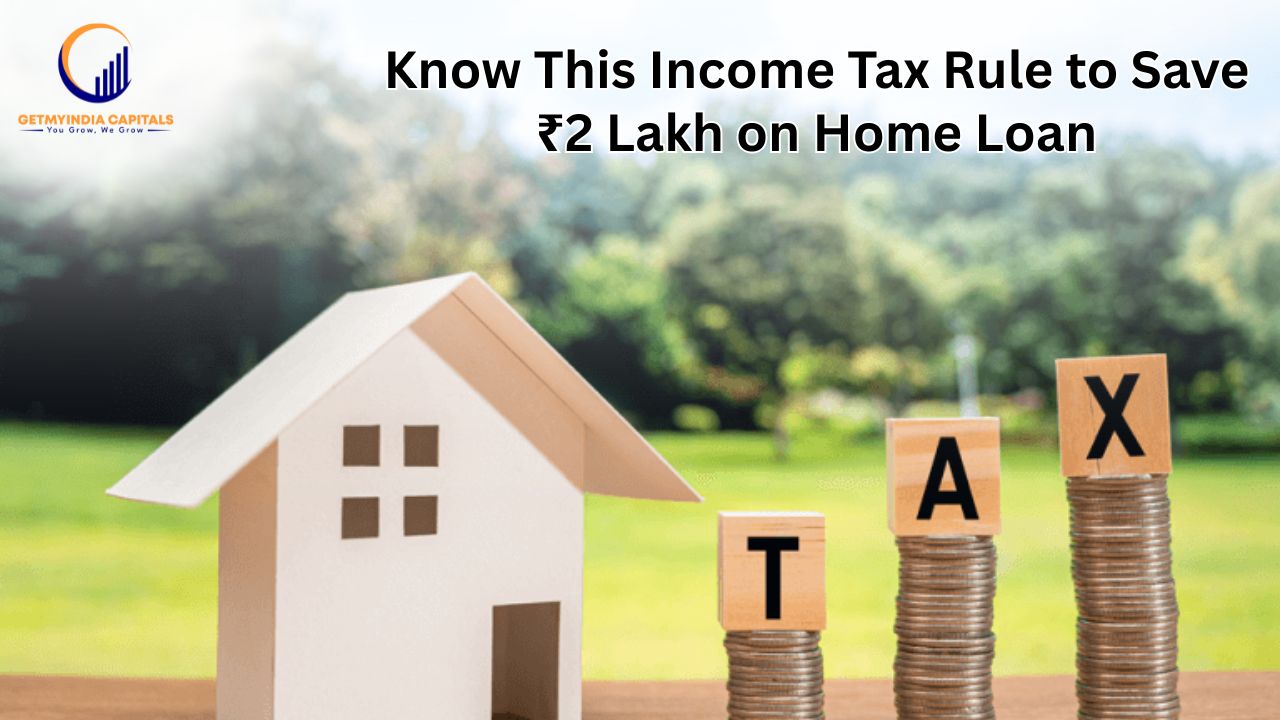Introduction
If you are acquiring a home by taking a loan, then you can claim deductions on interest paid up to ₹ 2 lakhs on self-occupied property under section 24(b). Whereas entire interest can be claimed as deduction in case of let out property. Principal repayment of ₹1.5 lakhs can also be claimed under section 80C. While obtaining a housing loan can be costly, it is also possible to benefit from several tax deductions that can help you save money on taxes each year.
Impact of New Tax Regime on Home Loan Benefits
Home Loan benefits under the old tax regime remain the same as one can avail deductions without any restrictions, however, the under new tax regime benefits are curtailed, let’s know in detail about the same.
- Deduction under section 80C for the principal repayment of the home loan, stamp duty, registration charges and Section 80EE, Section 80EEA are not available
- Deduction under section 24(b) for the payment towards the interest component of the home loan is not available for self-occupied property.
However, deduction under section 24b is available for let-out property. If net income from let out property results in loss, then such loss will be allowed to set off against profit from another house property but not allowed to set off against other heads of income like salary or other sources.
Deduction for Interest Paid on Housing Loan u/s 24
A loan must be taken for the purchase or construction of a house property to claim a tax deduction. Construction must be completed within five years from the end of the financial year in which the loan was taken. When construction exceeds 5 years, deductions up to ₹30,000 can be claimed.
- For Self Occupied property: The interest portion can be claimed as a deduction up to a maximum of ₹2 lakh.
- For let out property: There is no limit for claiming tax exemption on interest. You can claim deduction on the entire interest paid on your home loan.
Interest Paid During Pre-Construction Period
Say you bought an under-construction property and have not moved in yet but you are paying the EMIs. In this case, you can claim deduction only upon completion of construction.
Does this mean no tax benefit on interest paid before completion of construction? You have to wait, it will be available but with some conditions and in future years. Let’s understand how. The Income Tax Act allows you to claim a deduction for interest paid before completion of construction. This concept is called pre-construction interest.
Once the property is fully constructed, interest paid during under construction period can be claimed as a deduction in 5 equal installments. In the same year, interest paid after the construction can also be claimed. However, the maximum eligibility remains capped at ₹ 2 lakh. Let’s understand this provision using an example.
Illustration
You availed a home loan in April 2022 for construction and paid an interest of ₹10,000 a month. Construction of the house was completed in April 2024 after two years. Hence, you can start claiming the pre-construction interest of ₹2.4 lakh (approx) paid by you only after the construction gets completed starting from the year 2024-25. Maximum interest deduction under Section 24(b) is capped at ₹2 lakh (including current year interest + pre-construction interest). So if you paid interest of ₹1,20,000 during the year 2024-25 then you can claim a total interest deduction of ₹1,68,000 (i.e., ₹1,20,000 as current year interest and ₹48,000 as 1/5th installment of pre-construction interest). Further, if your home loan is eligible for deduction under Section 80EEA, you can claim an additional deduction of ₹1.5 lakh over and above the limit of ₹2 lakhs u/s 24(b).
Tax Deduction for Joint Home Loan
If a home loan is taken jointly, each borrower can claim deduction on home loan interest up to ₹2 lakh under Section 24(b) and tax deduction on the principal repayment up to ₹1.5 lakh under Section 80C. This doubles the amount of deductions available when compared to a home loan taken by a single applicant. It is however required that both the applicants should be co-owners of the property and both service the EMIs.
Conclusion
Understanding home loan-related tax provisions can significantly reduce your tax burden. Under the old tax regime, deductions under Section 24(b) (up to ₹2 lakh for interest) and Section 80C (up to ₹1.5 lakh for principal) can be fully utilized. You may also claim additional benefits under Section 80EEA for affordable housing. In case of under-construction properties, pre-construction interest is also deductible over five years post-completion. However, most of these benefits are not available under the new tax regime, making it less favorable for home loan borrowers. Joint home loans further enhance tax-saving opportunities, provided both applicants are co-owners and contribute to loan repayment.
GetMyIndia.com RaysVeda.com GetMyStartup.com LawCanal.com ABHAYRAY.COM ZinCob.com

